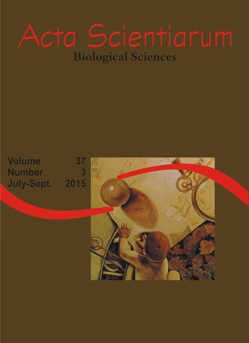<b>Characterization of autochthonous wine yeasts isolated in vineyards of the State of Paraná, Brazil
Abstract
The transformation of grape must into wine is a complex microbiological process and is the product of the combined action of several genera and species of yeasts, dominated in the intermediate and final stages of fermentation by an alcohol-tolerant Saccharomyces sp. Current assay characterizes 42 autochthonous yeasts, isolated from the state of Paraná, southern Brazil, according to the following oenological properties: H2S production, fermentation rate, flocculation capacity, and killer phenotype (killer, sensitive and neutral characteristics). Current analysis is the first to evaluate killer phenotype in yeasts isolated from the State of Paraná, Brazil. With regard to their oenological traits, the yeasts evaluated were not suitable for winemaking and suggested that, depending on the harvest, the winemakers may face problems during the spontaneous wine production process.
Downloads
DECLARATION OF ORIGINALITY AND COPYRIGHTS
I Declare that current article is original and has not been submitted for publication, in part or in whole, to any other national or international journal.
The copyrights belong exclusively to the authors. Published content is licensed under Creative Commons Attribution 4.0 (CC BY 4.0) guidelines, which allows sharing (copy and distribution of the material in any medium or format) and adaptation (remix, transform, and build upon the material) for any purpose, even commercially, under the terms of attribution.
Read this link for further information on how to use CC BY 4.0 properly.













1.png)




3.png)













